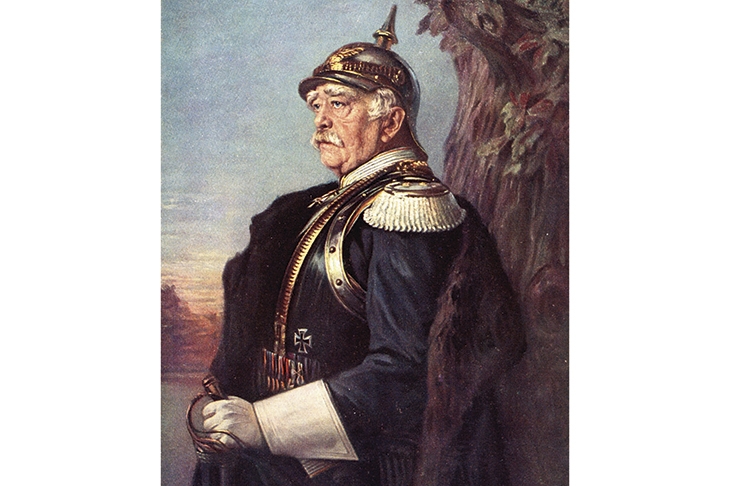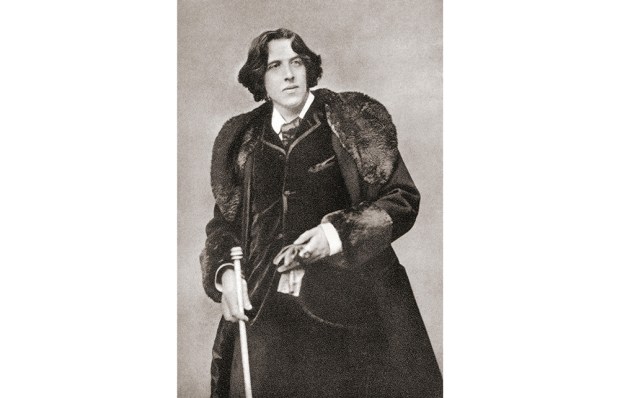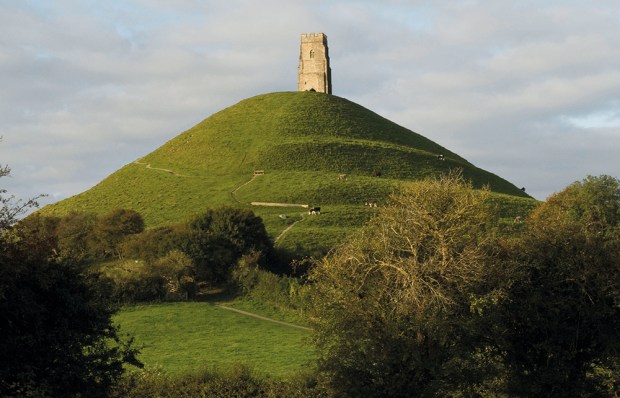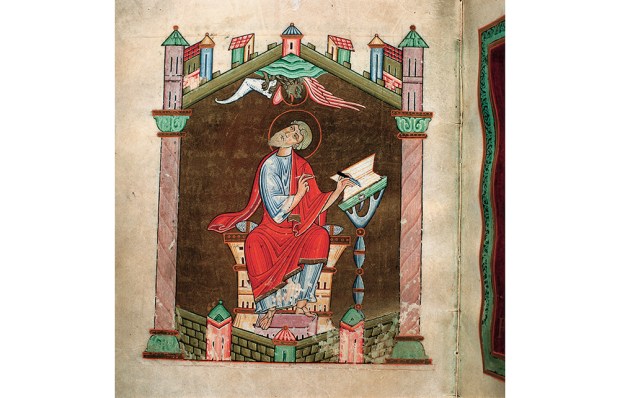The reviewer’s first duty is to declare any skin he may have in the game, so here goes: I write this in a bone-chillingly old house filled with portraits of Prussian Junkers, ancestors of my third son, the oldest of them still wearing steel plate about chest and shoulders, the more recent armoured only by expressions of ineffable superiority.
What a lot of them there are. Somehow their Lutheran Prussia — dirt poor by the standards of France and Britain but uniquely militarised, its spiritual heart so far east as to be now in Russia — managed, in the second half of the 19th century, to annex the entire human and industrial strength of wealthy, advanced, largely Catholic western Germany for their ancient ‘drive to the east’. The Eastern Front in the second world war, with all its attendant horrors, was merely their final throw; for the one thing which united this caste-bound bunch with the otherwise despised ‘Bohemian Corporal’ Hitler was their determination to sort out the Slav helots — as they saw them — once and for all.
Few stories can bear more retelling, and though it was matchlessly covered in Christopher Clarke’s Iron Kingdom in 2007, Katja Hoyer takes the tale by the scruff of the neck and gives it a good shake for the less demanding general reader.
Her thesis is bold and simple. It is also one fit for these days, when the great nations seem to be putting up the shutters again. There was an original sin at the heart of Bismarck’s empire. What enabled him to create it as he did was the ‘spirit of defensive nationalism’ which took hold of Germany in 1813-5. Born in the uprising against generations of French cultural hegemony and Napoleonic occupation, that spirit became inappropriate to the economic and military behemoth that was Prussia-Germany by 1914, and was fatally rammed home by defeat in 1918, which completed German unification, but in quite the wrong way.
The consequence of this is to pretty well whitewash Otto von Bismarck. The Iron Chancellor becomes the mere agent of this allegedly irresistible national mood, a tactical genius and a responsible European diplomat after 1871, rather than the ‘demonic’ figure our ambassador, Lord Odo Russell, considered him.
The German Civil War of 1866 is described (as it is in most old schoolbooks) as having been decided in a single day at the battle of Königgrätz between Prussia and Austria. It wasn’t. The other German kingdoms — all four of them — also mobilised for Vienna, against Berlin. The Hanoverians even beat the Prussians in a pitched battle, and in the south west, serious fighting went on for more than three weeks after Könnigrätz. Prussia’s General von Manteuffel surrounded the true, ancient capital of Germany, Frankfurt, and informed its wealthy citizenry that if they didn’t hand over a vast ransom in bullion within 24 hours, he would open up with his artillery and unleash his East Prussian farm boys on them.
This wasn’t unification at the bidding of some vague national will, as Hoyer implies, but conquest by a polity uniquely and deliberately organised for all-out war. Disraeli, our greatest prime minister, saw exactly what was what and called Bismarck’s new state ‘Prussia-Germany’ or even just ‘Prussia’ till the end of his days. The truth is that Bismarck’s entire political ‘genius’, so admired by Dominic Cummings, was based on the certainty of having the Prussian Guard behind him. He was prepared always to play va banque — most people aren’t, of course — but only because he knew (and frequently hinted) that if it came to it, his scar-faced myrmidons would clear the Reichstag at bayonet-point.
So, with those faces glaring down, it has to be said that while this is an entertaining enough read, if you seek true insight into the Prussian-German empire, Clarke’s Iron Kingdom remains the place to go.
Got something to add? Join the discussion and comment below.
Get 10 issues for just $10
Subscribe to The Spectator Australia today for the next 10 magazine issues, plus full online access, for just $10.
You might disagree with half of it, but you’ll enjoy reading all of it. Try your first month for free, then just $2 a week for the remainder of your first year.














Comments
Don't miss out
Join the conversation with other Spectator Australia readers. Subscribe to leave a comment.
SUBSCRIBEAlready a subscriber? Log in